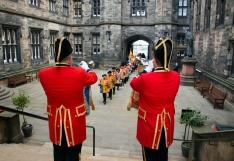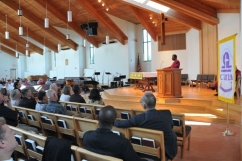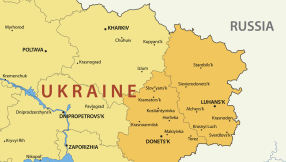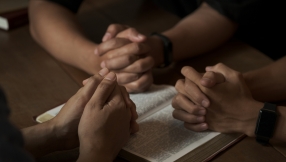A split over gay marriage in the Church of England may be unavoidable, the Archbishop of Canterbury's chief of staff admitted on Friday, despite desperate behind-the-scenes discussions to reconcile opposing factions.
The Church's governing body will enter into secret talks next month in an effort to "change the tone of the debate" over teaching on same-sex relationships. But David Porter, who also heads up the discussions known as Shared Conversations, said they may fail to prevent a split.
"Shared Conversations should not be measured on its ability to stop a fracture," he told journalists on Friday.
Porter said the history of the Church showed it did divide on difficult issues but it was about "how we fracture". He insisted it was "too early" to say whether the Church would break apart and said he was concerned with the "nature of the conversation, not the outcome".
At its July meeting, the CofE's general synod will discuss issues of human sexuality in private sessions over three days. The 467 members of synod will discuss their views on sexuality in small groups of up to 20, each of which will have at least two bishops.
The discussions will be facilitated by experts from the United Nations and European Parliament to "help people to participate effectively".
As well as small groups, the talks will include central meetings where outside guests, including LGBT representatives, will address the synod. The sessions will include studying Scripture in addition to discussions on how culture has changed.
"Changing the atmosphere is too weak a phrase," said Porter. "Every church that has tried to address the issue of sexuality has fractured in some way.
"This is about raising the capacity of the Church to have a genuine conversation."
The main purpose "is to develop mutual understanding". The talks are not a decision making process and there is no indication if or when the Church will make a statement on its views on marriage either way.
A briefing to synod members admitted that "all the dialogue in the world cannot disguise the fact that sometimes we do just disagree about something and no amount of effort can help us to find an answer we can all accept or even a solution we can all live with".
Traditionally the July meeting of synod, which has the powers to make laws, is taken up with passing legislation. But the issue of gay marriage has wreaked havoc in the Anglican Church since 2003 when its episcopal wing in the United States ordained an openly gay bishop. This year's five day session will be dominated by the Shared Conversations.
In the opening two days the synod will be asked to pass efforts to simplify its complex legal process to make it easier to repeal Church laws.
Synod will also discuss the vision behind its "renewal and reform" agenda which is a comprehensive effort to salvage the Church after years of decline.
















